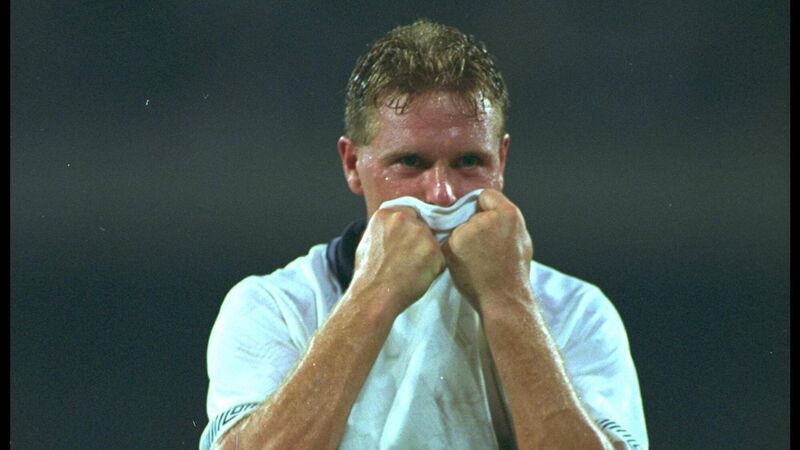Enda McEvoy: Italia '90 far from played out for me

DRY YOUR EYES MATE: Paul Gascoigne reacts to his booking against West Germany in Turin in 1990.
Thirty two summers ago, red of face from the sun and thoroughly sick of pizza, your correspondent tottered home from Italy. Only two items of business remained to be transacted that year.
The first entailed showing up in the bookie’s the day after the World Cup final brandishing a docket for a fiver on West Germany at 8/1 – those being the days, younger readers, when 40 quid was 40 quid and more besides. The second involved buying a copy of Pete Davies’s when it was published at Christmas and relieving at leisure those three halcyon weeks in Cagliari, Palermo, Genoa and Rome.









